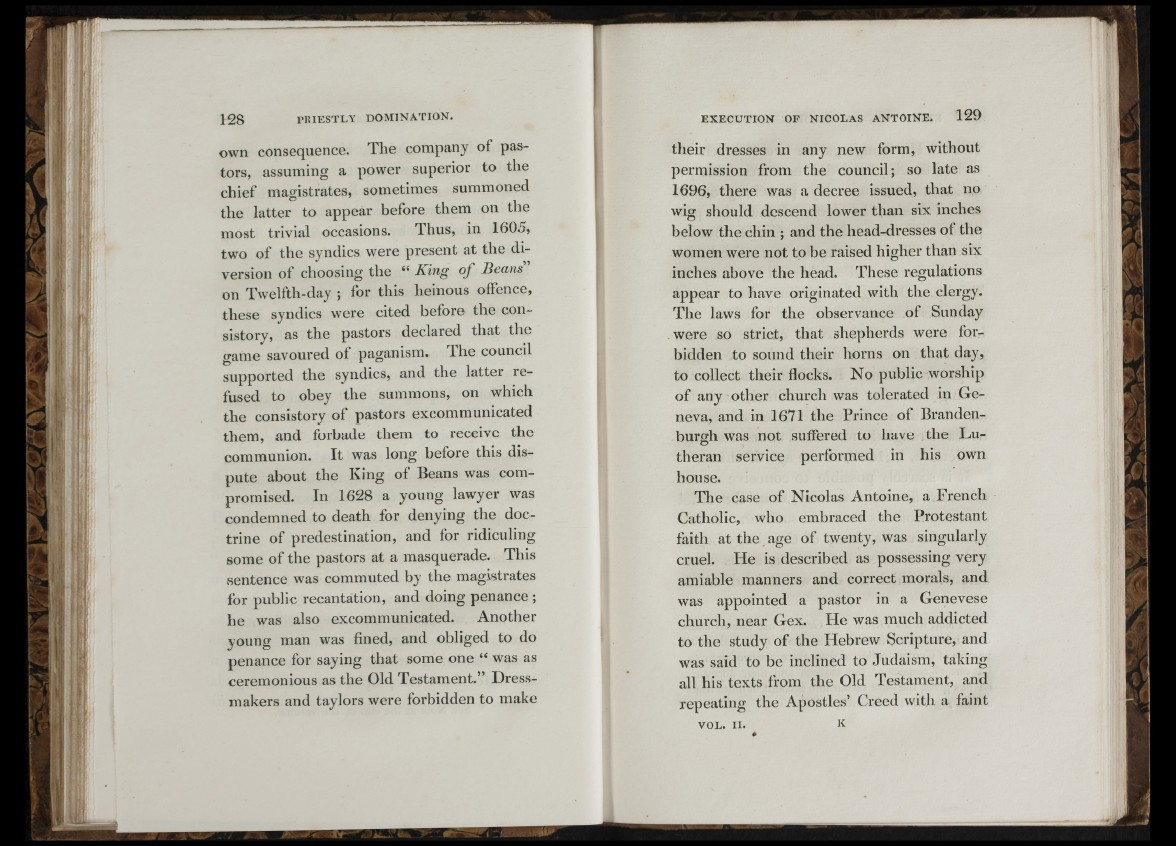
own consequence. The company of pastors,
assuming a power superior to the
chief magistrates, sometimes summoned
the latter to appear before them on the
most trivial occasions. Thus, in 1605,
two of the syndics were present at the diversion
of choosing the “ King o f Beans
on Twelfth-day ; for this heinous offence,
these syndics were cited before the consistory,
as the pastors declared that the
game savoured of paganism. The council
supported the syndics, and the latter refused
to obey the summons, on which
the consistory of pastors excommunicated
them, and forbade them to receive the
communion. It was long before this dispute
about the King of Beans was compromised.
In 1628 a young lawyer was
condemned to death for denying the doctrine
of predestination, and for ridiculing
some of the pastors at a masquerade. This
sentence was commuted by the magistrates
for public recantation, and doing penance ;
he was also excommunicated. Another
young man was fined, and obliged to do
penance for saying that some one “ was as
ceremonious as the Old Testament.” Dressmakers
and taylors were forbidden to make
their dresses in any new form, without
permission from the council; so late as
1696, there was a decree issued, that no
wig should descend lower than six inches
below the chin ; and the head-dresses of the
women were not to be raised higher than six
inches above the head. These regulations
appear to have originated with the clergy.
The laws for the observance of Sunday
were so strict, that shepherds were forbidden
to sound their horns on that day,
to collect their flocks. No public worship
o f any other church was tolerated in Geneva,
and in 1671 the Prince of Branden-
burgh was not suffered to have the L u theran
service performed in his own
house.
The case of Nicolas Antoine, a French
Catholic, who embraced the Protestant
faith at the age of twenty, was singularly
cruel. He is described as possessing very
amiable manners and correct morals, and
was appointed a pastor in a Genevese
church, near Gex. He was much addicted
to the study of the Hebrew Scripture, and
was said to be inclined to Judaism, taking
all his texts from the Old Testament, and
repeating the Apostles’ Creed with a faint
V O L . I I . K
t